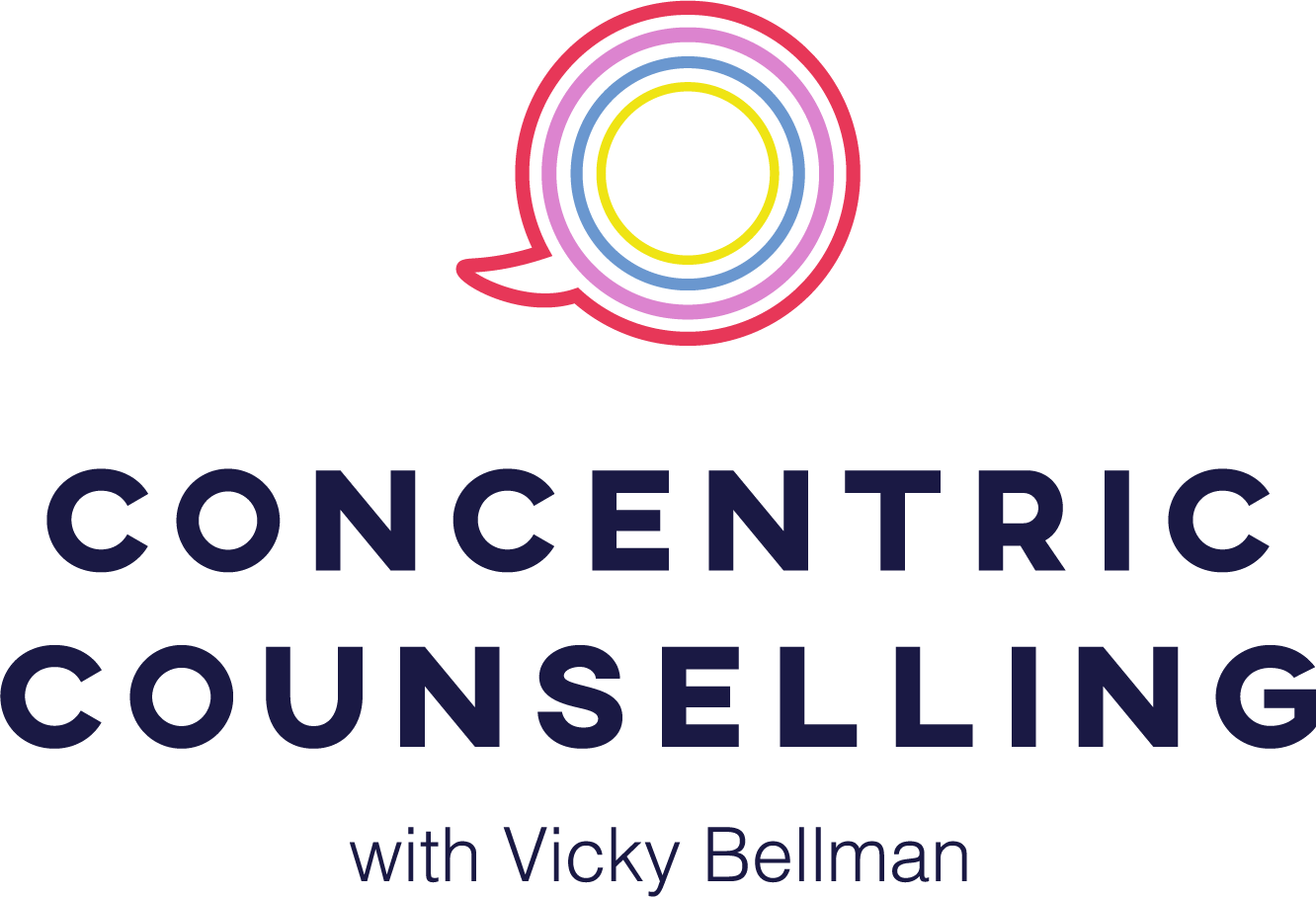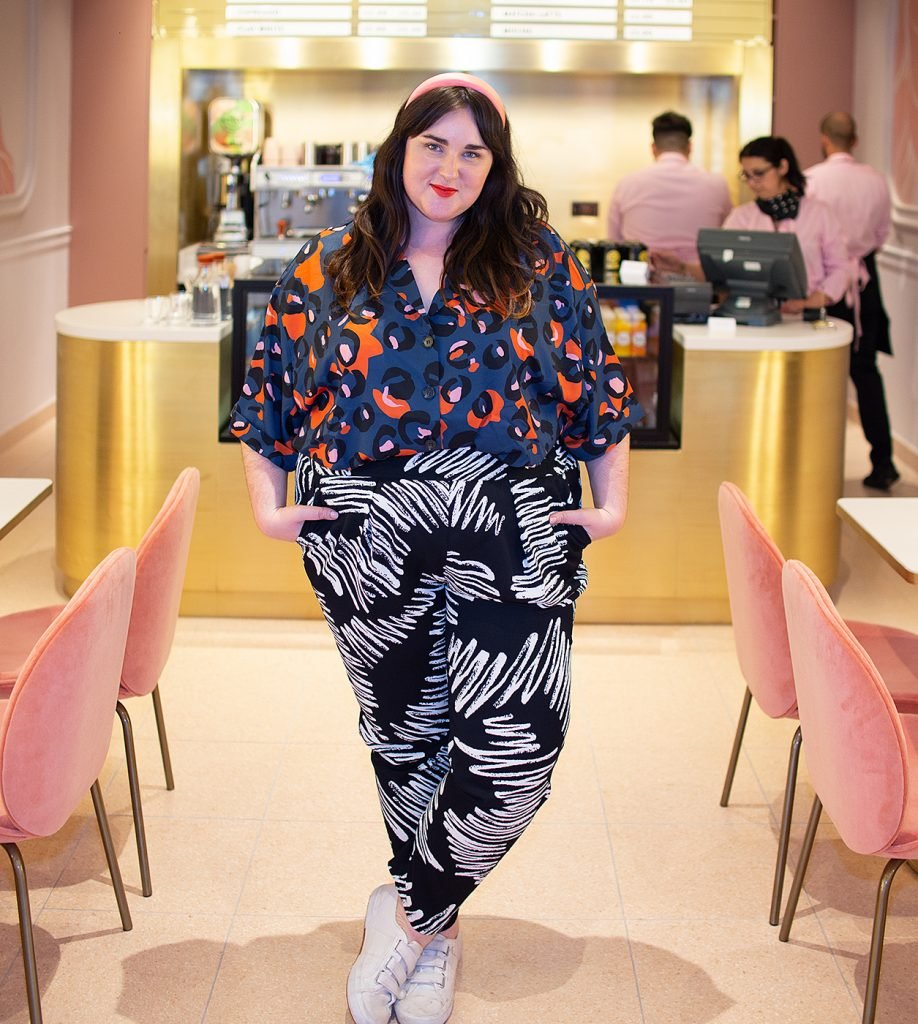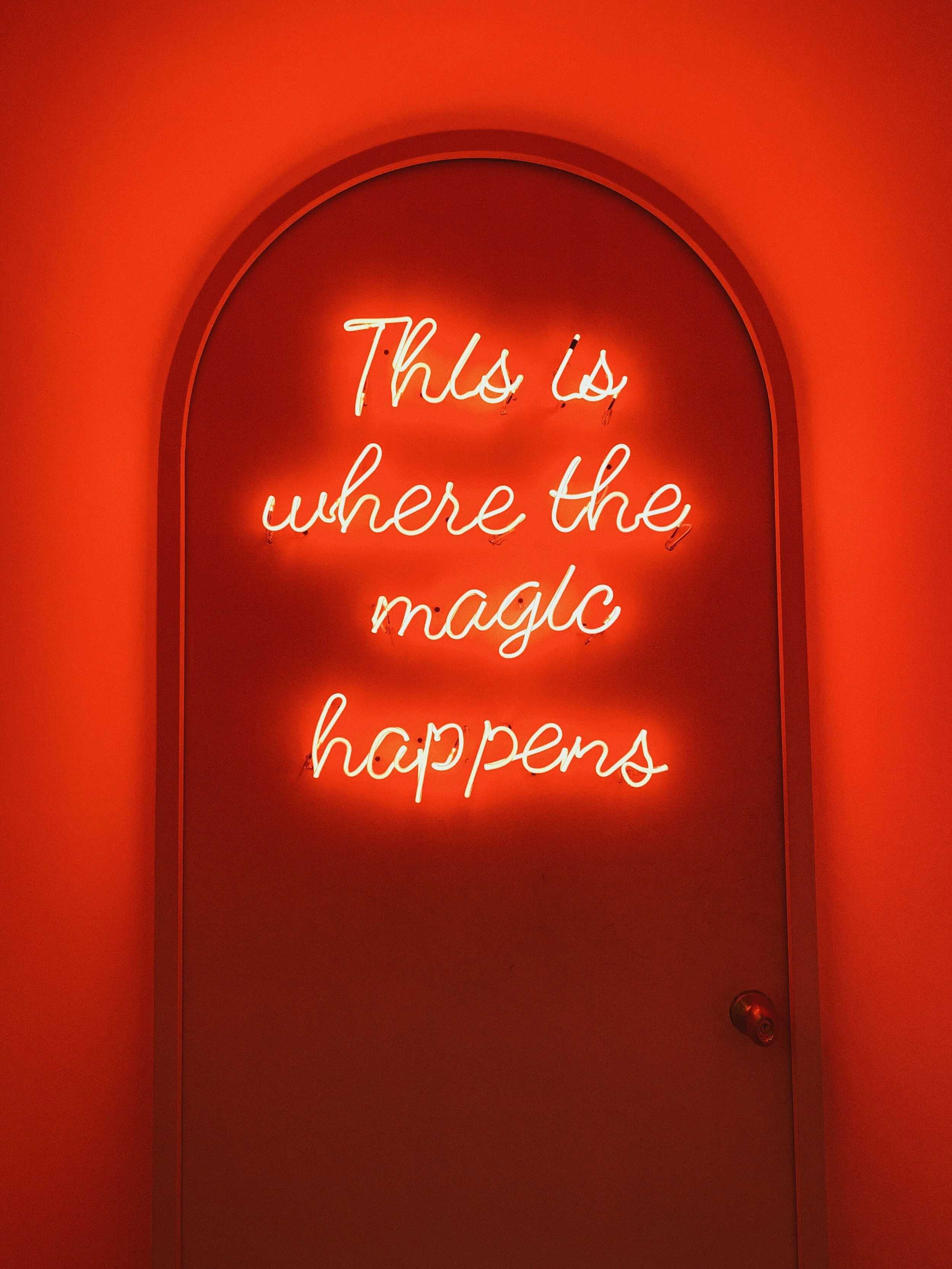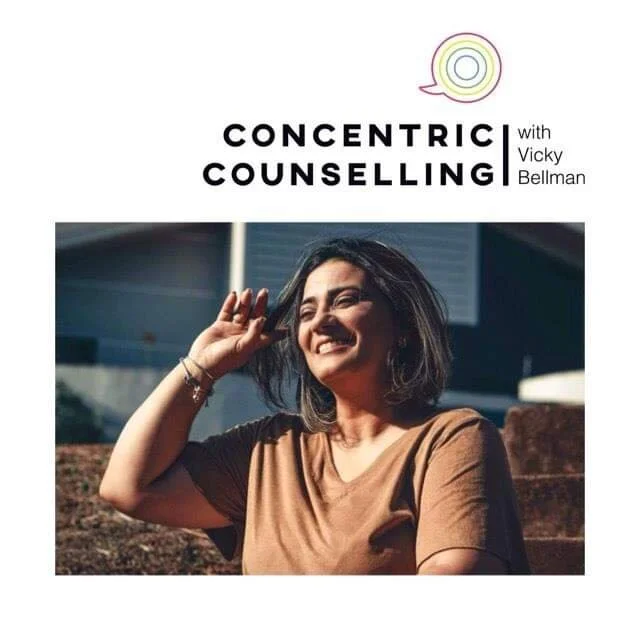A beginner’s guide to developing body acceptance
And so begins December, the month where dominant culture tends to deep-slide into a clarion call for ‘indulgence’ before, as regular as clockwork, the adverts and articles that promise ‘new year, new you’. Christmas is an exaggerated example of the pendulum swing that diet culture encourages; ricocheting between too much and not enough – all governed by a deep fear that we ourselves are not enough.
We are taught by diet culture to keep ourselves in a constant state of restriction – to do without all but the most necessary of nutrition. We reduce, restrict and eliminate as much as possible throughout the year until our festivals and celebrations come round, and the table is suddenly laden with everything that we are taught to see as bad, as naughty, as an indulgence or a sin/syn. We spend the entire year demonising certain foods, only to then be taught to eat it alllllll... and then, as quick as a flash, to do away with it all, as we recommence our quest for the perfect body again on Jan 1 (I wrote an article last year on normalising festive foods – you can read more here).
Maybe this year you are looking for an alternative. Maybe this year you want to step off this confusing and overwhelming ride – where you have to abandon your inner cues to conform to external messages. Maybe this year you’re hoping for more for yourself.
Diet culture wants to keep you – diet culture is a business. Diet culture wants to create weight cyclists, not weight losers. Why sell someone something once when we can sell them something fifty times over the course of a lifetime? Diet culture is heavily invested in lobbying you with powerful and insistent messages about the need for diets; diets that exploit your deepest fears of missing out, and reinforce again and again that your body is not currently acceptable and is something to be changed. But maybe this year you want to try a different way? A more affirmative way – a way that advocates for you, just you, who you are now. So read on for some beginner’s tips on building a new way for yourself and your body.
Begin with compassion
Developing self-compassion is the foundation of body positivity. As you develop your body acceptance, you will necessarily begin to build awareness of things you would like to change about and for yourself. A diet mentality would have you judge yourself and punish yourself into changing; we want to do things differently.
There is a reason for all our behaviours – everything we do is an attempt to find balance and safety. At one point, it felt like the most sensible option we had to go with the crowd and engage in body-shaming and modifying behaviours. But... you can’t hate yourself into accepting yourself, and practising noticing without judgement is a vital tool as you create this new path of acceptance for yourself. Remember, you’re learning a brand new skill – just like playing the piano or learning a new language, it will take time. We’re aiming for curiosity, not criticism:
Critical inner voice – oh, that’s a bad thought, I need to get rid of that!
Curious inner voice – oh, that’s an interesting thought, I’ll keep an eye on that.
Do you see the first thought response shuts down possibility, and is rooted in binary (good/bad) judgment values, and focuses on elimination? Sounds very diet culture-y, doesn’t it? See, instead, how the second thought response is more open, more focused on potential and acceptance?
We have to build new structures to make new changes – we can’t create this radical change using the tools of diet culture. Compassion is our non-diet Swiss army knife – a multi-purpose tool that can help us in nearly every challenge.
Set some internal rules of engagement
There is a constant conversation going on within us – different parts of ourselves, with different priorities and focuses, all with something to contribute. Often, that conversation can take a negative turn, and any affirming or encouraging inner voices are shouted down.
If you were sitting round a table with friends and the conversation turned toxic, what would you do? Steer the conversation to something more positive? Purposefully involve the affirming and encouraging friends gathered around your table? Interrupt the group and set a boundary? Walk away? Just as you have boundaries with other people and the behaviour that you will tolerate, you need to practice giving your inner conversation some boundaries.
Identify your why
I deeply understand that there are reasons to lose weight in a world that discriminates against bigger bodies. It’s so tempting to continue to engage in the cycle of weight loss and weight gain, albeit accompanied by the stress, anxiety, fear and misery that this cycle often provokes.
We see intentional weight loss as the access code for the life we want. Imagine the release – the potential – when you see yourself as inherently valuable. When you live for yourself, rather than for the gaze of others. When you allow yourself to step into all the possibility of your life, without having to lose weight first. Everything you want for yourself is possible in the body you currently have.
Recovery is not linear
This is a practice, not a destination. And... this is not perfect. It’s diet culture that promises perfection, and leaves you disappointed as you repeatedly ‘fail’ to meet this unattainable goal.
Self acceptance is a messy journey – it's an un-layering, an uncovering. It’s demanding, and can sometimes feel like two steps forward, one step back. But, as a return for engaging in this work, there is the potential for deep understanding, awareness building, acceptance and empathy. There is the opportunity to uncover fear, and replace it with soothing and healing; an opportunity for abundance, where a clutching hold of scarcity once lurked.
Reduce body scrutiny
We scrutinise our own bodies, and others, constantly – we're conditioned to do so. Set a new boundary with yourself – that you are going to practice not passing comment on bodies – positive or negative. It’s hard – body inspection is expected in our culture. But, in choosing body acceptance, we are choosing to walk away from passing value judgments on our bodies, and the bodies of other people – looking for what makes certain bodies better or worse than others. Body scrutiny encourages comparison and judgment; beginning to choose the alternative helps us to desensitise ourselves to this disapproval, and step towards neutrality, and then acceptance, to the diversity and value of all bodies.
Find your support network
Who in your life will support you in making this radical change? Is there a member of your family or friend network who will understand the journey that you want to take to heal your relationship with food and your body? Body acceptance is oddly counter-cultural – dominant culture organises bodies in scales of privilege and perceived value. So what you’re doing might not make sense to a lot of people – is there anyone you know that’s going through a similar process of acceptance? Perhaps you are looking to a pro to offer this support – a therapist or coach. Who will understand and empathise with the challenges, losses, acceptance and gains of this journey?
Read! Listen! Connect!
Reading and listening to books can be a powerful way to access information and develop appreciation and acceptance of body diversity, and the inherent value of all bodies. Reading the memoirs and essays of people who have trod this path before us is deeply validating, and empowering, and can be a reassuring antidote to the overwhelming chorus of the diet culture choir. Finding communities eg Facebook groups, the comments section of your fave non-diet Instagram accounts, and like-minded friends, are also vital in creating a sense of connection – this work can sometimes feel lonely, and seeking out opportunities for bonding can really help support this work. Have you found a favourite non-diet book? I’d love you to share in the comments.











